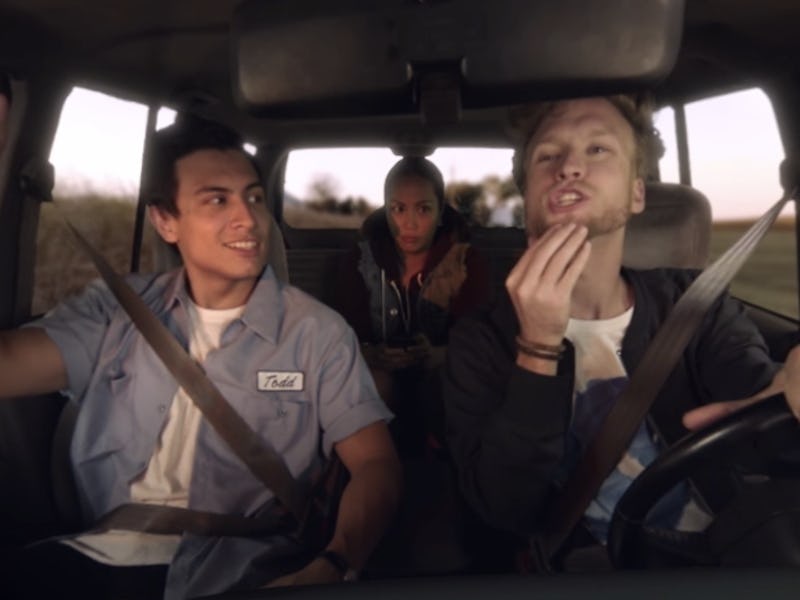The full terror and tragedy of drunk driving can only be realized first hand — when it’s too late. A new virtual reality video campaign warning against drunk driving showing a 360-degree view of a horrific three-car collision hopes to change that. Its use of scare tactics has been criticized as a cruel and ineffective way to change behavior, but psychologists have consistently found that those strategies really work.
The four-minute VR film titled “Decisions” was produced by Diageo, an alcohol titan that owns brands such as Smirnoff and Guinness, in an attempt to take existing campaigns against drunk driving to their immersive extreme. Users watching the video follow three cars: One driven by a set of new parents, another packed with a gang of party-bound friends, and one other driven by a woman who has just celebrated a professional victory with one too many drinks with her colleagues. A tragic crash ensues after she tries to overtake one of the other cars, but the woman survives.
Drink Driver Education Plus, a British organization that acts as a consulting firm for agencies designing campaigns against drunk driving and drug use, has criticized Diageo’s use of “scare tactics” in the video, according to the BBC. But other agencies dedicated to raising awareness about the perils of drunk driving — like the United Nations Institute for Training and Research, which has partnered with Diageo — have supported this approach; the use of the immersive, fear-based experience, after all, is scientifically justified.
In 2015, researchers from the American Psychological Association published a review in the journal Psychological Bulletin reporting that fear-based appeals were, contrary to older beliefs, very effective in changing human behavior. Looking at over 50 years of research on the topic, co-author Dolores Albarracin, Ph.D., concluded that there are “few circumstances under which they are not effective and there are no identifiable circumstances under which they backfire and lead to undesirable outcomes,” as she noted in a statement. In light of this thorough meta-analysis, Diageo’s use of fearmongering is justified — and, at the very least, won’t hurt the people exposed to it.
Still, the paper acknowledges that teaching people how to change their own behavior in the long term is ultimately the most effective approach. Unfortunately, these strategies take more time and involvement than a scary four-minute video does, and time, when it comes to drunk driving, is of the essence. According to the CDC, 28 Americans die in crashes involving drunk drivers every day, which comes out to one death every 53 minutes. The damage caused by alcohol-related accidents costs the U.S. $44 billion a year — not to mention the incalculable amount of psychological stress it causes to survivors and families of victims.
Effective though the film may be, it’s only helpful if people watch it. How DRINKiQ, Diageo’s alcohol education branch, will convince drinkers to allow themselves to be scared shitless en masse remains to be seen, but we suggest you give it a watch below:
